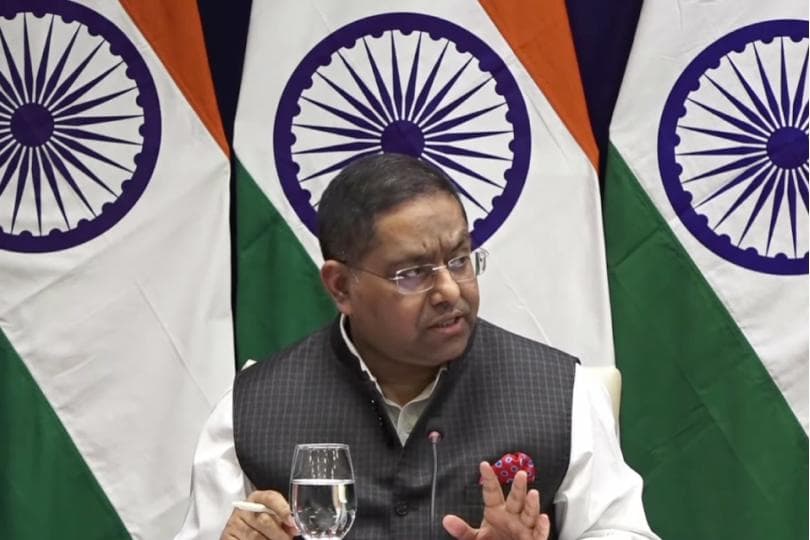India Counters China's Territorial Claims

India has lodged a robust protest against China's recent road construction activities in the Shaksgam Valley, an area India claims as its territory. The Ministry of External Affairs (MEA) has vehemently rejected the 1963 China-Pakistan Boundary Agreement, which purportedly transferred control of the valley to China.
MEA spokesperson Randhir Jaiswal reiterated India's steadfast refusal to accept any alterations to ground realities and asserted India's sovereign right to safeguard its interests. India asserts that the 1963 agreement facilitated the illegal transfer of 5,180 square kilometres of Indian territory from Pakistan to China. Also, India has long accused China of occupying approximately 38,000 square kilometres of Indian land in Ladakh for over six decades. This protest shows India's unwavering commitment to challenging China's actions in the region and defending its territorial integrity against any encroachments or attempts at altering established boundaries.
India shares borders with its neighbours China and Pakistan which has always been the point of contention between these countries. Pakistan finds itself caught in a complex web of economic necessity and geopolitical alliances. While its business community urges the government to re-establish trade ties with India, Pakistan's deepening ties with China raise concerns. The growing partnership with China, evident in infrastructure projects like the China-Pakistan Economic Corridor (CPEC), risks exacerbating tensions with India, particularly regarding disputed regions like the Shaksgam Valley. Additionally, China's assertive territorial ambitions extend beyond its borders, with a track record of encroachments in various regions, including the South China Sea, the Philippines, Vietnam, and India's mountainous borders. This pattern highlights China's broader agenda of territorial expansion and strategic dominance, posing challenges not only to India but to regional stability as a whole.


































